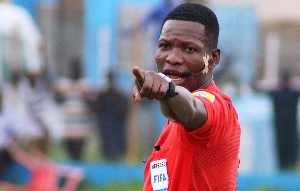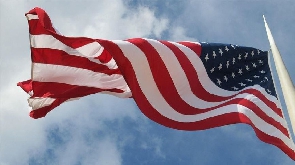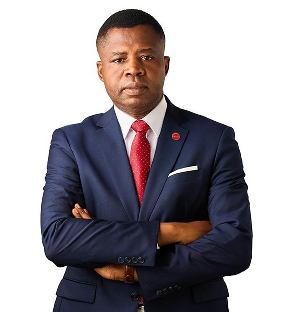MINISTRY OF COMMUNICATIONS
RE: Dakar Declaration – Concerning Government Imposed Surcharges On Incoming International Traffic.
The attention of the Ministry of Communications has been drawn to a statement issued by the West African Telecommunications Conference of telecom operators held in Dakar on 25th November 2010 concerning ‘government imposed taxes on incoming international traffic’. The statement was published in the Monday, December 13, 2010 edition of the Business and Financial Times, and lately it is being serialized in some of the national daillies.
The conference sponsored and organized by France Telecom, was attended by Vodafone and some operators in an ostensible attempt to frustrate the regulation of the activities of the telecom operators in the wake of the increasing popularity of the success of anti-fraud activities being undertaken by the National Regulatory authorities.
Indeed, the Declaration of the ITU Study Group 3 Regional Group for Africa meeting in Dakar held in March 2010 took notice of the unique network by multinational telecoms groups and called for special and indispensable steps to be taken by the African Regulatory Authorities to protect the interests of their states to guarantee the revenue optimization and its equitable distribution.
The recommendations of the ITU Study Group-3 meeting, signed by the Regulators, acknowledged the necessity to set up “common platforms for the exchange of information in real time on the flow of traffic. This technological update is all the more important because it will serve to collect fees from the various players and to fight fraud – which is a scourge of the telecommunications sector – efficiently”.
In the rush to discredit the exercise by Regulatory Authorities in Africa to establish mechanisms to protect the markets from dumping and anti-competitive practices and raise revenue for development, the Telecom Operators in their Statement made serious misrepresentations, for which reason it is necessary to throw more light on the international telecom operations.
To begin with, the Ministry is satisfied that the regulation of the communications sector in Ghana is conducted in an open and transparent manner and this is in consonance with the transparent and democratic credentials of the Better Ghana Agenda of the Government.
It is the existence of Ghana’s enabling legislation and the generous incentives provided by Government that have largely contributed to continual growth of the sector and which has attracted such global players as MTN (50% market share); TIGO (23%); Vodafone (15%); Bharti Airtel (10%); and Espresso (2%).
The France Telecom-engineered conference has made an assumption that the tax on international traffic runs counter to the decision of the ITU Plenipotentiary Conference of 1998 that requires settlement fees to be cost based. This statement demonstrates a clear mis-understanding of the ITU. The protocols of a Plenipotentiary Conference also reserve the right of individual countries to set aside the provisions of the Conference where these conflict with sovereign interests of the particular country.
Furthermore, there is a reference to a communiqué of a meeting of ICT Ministers in Bamako on 29th July 2010. This actually refers to a meeting of the UEMOA member countries. This is a francophone grouping that Ghana does not belong to.
It is also strange that the discussion on the tax failed to recognize that the European countries (e.g. France, Spain, Hungary, Portugal) have also instituted general telecommunications taxes to be managed by the Telecoms Regulators. In the last year for instance, special taxes have been introduced by European countries as a way to increase tax revenue in periods of large public deficits. Most relevant examples are:
In France, Law 2009-259, of 5 March 2009, imposed on French telecom operators with revenue of more than 5 million euros a special tax of 0.9% of their total revenue from subscribers minus VAT for the financing of public broadcasting. The total amount expected to be raised is around €400 million a year.
In Spain Law 8/2009 of 28 August 2009 imposed a special tax; Hungary instituted a special ‘crisis tax’ of 6.5% of gross revenue by the Act of Parliament in October 2010. Portugal has also made public a draft bill instituting a tax on total internet access revenue of 1.5% to finance local cinema production.
Aside from these special taxes, the European countries also impose: General Telecom tax, Numbering tax; Spectrum tax; and Land occupation tax on operators for occupation of land for the deployment of their networks.
It is pertinent to mention that during the ITU Global Symposium for Regulators (GSR) involving stakeholders from Government, telecom operators, equipment manufacturers, civil society, etc, held in Dakar on 9-10 November 2010, the Industry Leaders Forum that was held as a side-event of the GSR introduced the same issue of taxation on international telephone traffic and it was made clear that developing countries consider taxation as a vital source for revenue for, and should therefore be respected.
With regard to the assertion that the tax increases the retail prices, it is pertinent to note that in Ghana, Act 786 specifically provides in section 1.3 that ‘a network operator shall not charge its customers for its services because of the minimum rate for international incoming electronic communication traffic’. It is therefore incumbent on the telecom operators to comply and ensure that no increase in retail prices will be made on account of the observance of the minimum rate for international incoming traffic to affect subscribers/consumers.
The Ministry also wants to respectfully report that contrary to the charge that the tax will cause a reduction in incoming international traffic accompanied by a reduction in revenues and diminished fiscal receipts, the Ghana experience has witnessed significant increases in traffic through the legal international gateways bringing along buoyant revenues that some of the honest operators have attested to.
Since the inception of the fraud watch exercise by the National Communications Authority, the numbers of fraud lines detected and reported to the Telecom Operators, on two-hourly periods, for immediate disconnection have averaged 5,918 fraud lines per month. A summary of the by-pass lines are presented as follows:
MONTHS MTN AIRTEL
(ZAIN) TIGO VODAFONE KASAPA TOTAL
MARCH 2,242 1,354 0 356 0 3,952
APRIL 2,470 1,446 23 173 0 4,112
MAY 1,558 1,343 50 301 0 3,252
JUNE 1,405 1,933 179 527 3 4,047
JULY 1,622 3,662 279 1,459 0 7,022
AUGUST 458 5,794 34 990 0 7,276
SEPTEMBER 100 3,887 45 2,046 0 6,078
OCTOBER 85 4,241 13 8,101 0 12,440
NOVEMBER 62 5,611 56 3,305 0 9,034
01 - 09 DEC 2010 1 1,678 4 284 0 1,967
GRAND TOTAL 59,180
We are happy that the Anti-Fraud Task Force of the NCA that includes representation from the telecom operators together with the Security Services, has so far made significant arrests of illegal terminators confiscating nearly 8,000 SIM cards of Vodafone and Airtel. This has already reflected in the reduced figures for Vodafone and Airtel in November and December respectively.
In addition to the detection of the fraud numbers, we also have as evidence of the fraud activities, the recent equipment seized by the National Security, which include:
1 Cisco router 1800 series SN: FHK1243F4BM
8 GSM Gateways: Each GSM Gateway processes 8 cards (each card can hold 4 simcards), 1 SVC port, 3 FE port, 1 COM port and 1 VGA port. GSM Gateway Manufacturer Type SN
The equipment specifications are:
1. HypermediaHG4040E6P90319
2. HypermediaHG200020102
3. HypermediaHG4032E6P90259
4. HypermediaHG4032E6P90150
5. HypermediaHG4040E6P90028
6. HypermediaHG2000V20028
7. HypermediaHG4040E6P90319EXT
8. HypermediaHG4032E6P90470
9. Antenna Combiner manufactured by Hypermedia which has 8 ports to connect each processing card of GSM GW and 2 ports to connect the antenna.
With such evidence, is it not helpful for the NCA to establish how the fraudsters have been buying the large quantities of SIM cards and Scratch Cards and how some of these get to be registered by the telecom operators who continue to provide services for the use of the routers? Should it also not be possible to identify who the fraudsters buy the international traffic from so as to alert the telecom operators and prevent them from sending Ghana traffic through the unauthorized routes?
For the first time in Ghana, the National Communications Authority is now in a position to assess the volumes of international incoming telephone traffic; this is the result of the implementation of the Gateway management exercise, and the improvement of its capacity to verify the authenticity of the Call Data Records being submitted by the operators.
The Ministry will continue to support and encourage the National Communications Authority to pursue its ‘Call busting’ activities and help protect the Ghana telecoms market from the dumping effects of the illegal activities within the sector.
Government of Ghana is committed to the implementation of the exercise and the compliance with the national laws will not be compromised.
We believe that the Ghana Chamber of Telecommunications, with full understanding of these circumstances, will not have rushed to endorse the Statement which for all intents and purposes will want to keep the retail margin in the USA and Europe between 50 cents and $1.50 while paying 10 cents on the average to the African carriers.
STEVE NII NAI MENSAH
PRO
FOR: MINISTER
General News of Thursday, 16 December 2010
Source: STEVE NII NAI MENSAH












